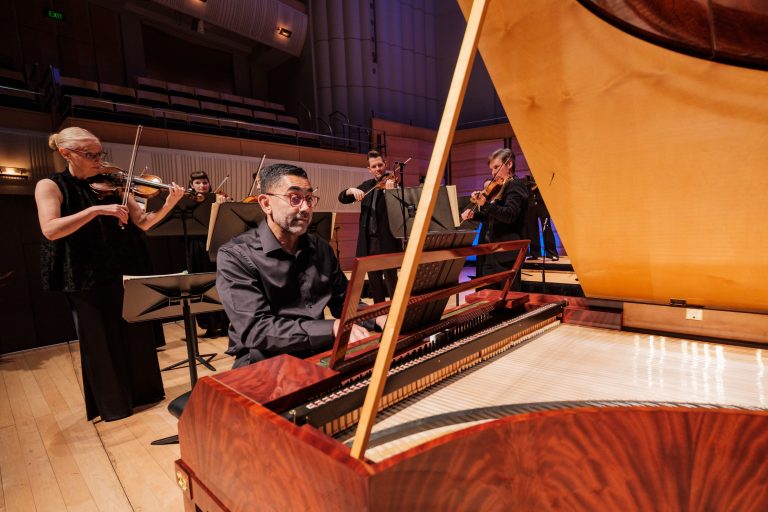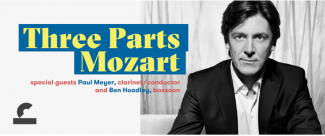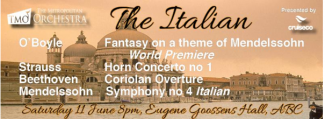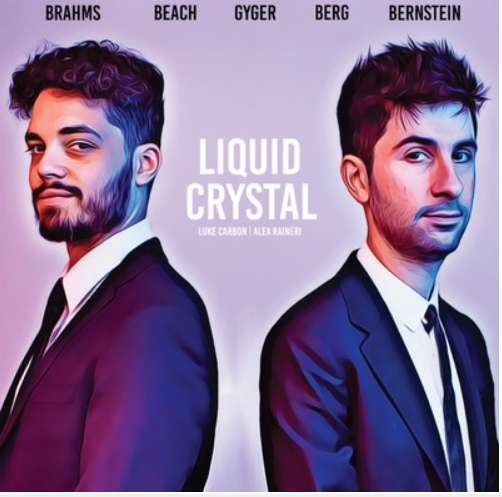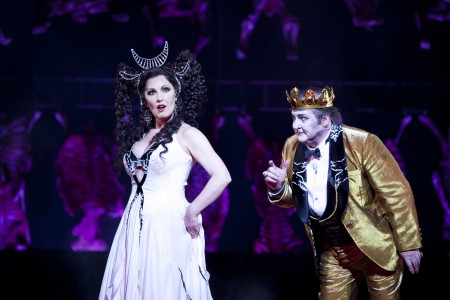Album Review: Waves III/ Halcyon
Halcyon’s recording, Waves III contains two multi-movement works, one by Nigel Butterley and the other by Raffaelo Marcellino. It is part of a recording project that creates studio quality recordings of Halcyon’s extensive anthology of new vocal chamber music, much of which the ensemble has commissioned and premiered.
Nigel Butterley’s Orphei Mysteria (2008) for mezzo-soprano, soprano and ensemble in three movements is a musical setting of Melbourne writer Patricia Excell’s poem about the Greek myth of Orpheus. Unusually, the mezzo-soprano is mentioned ahead of the soprano in the title. It is very much a piece for mezzo-soprano, sung by Jenny Duck-Chong, with soprano Alison Morgan joining in at selected, critical moments. Performing with them is an eclectic ensemble comprising Sally Walker playing flutes, Peter Smith on oboes, Alexandre Oguey oboe/cor anglais, Giuseppe Zangari on the guitar, violinist Victoria Jacono-Gilmovich, James Wannan, viola, and cellist Geoffrey Gartner, conducted by Matthew Wood. This song cycle was Highly Commended in the Paul Lowin Award for Song Cycle in 2009.
The mezzo-soprano voice introduces the Prologue to Orphei Mysteria, joined by the soprano and the rest of the ensemble. Part II, the middle movement opens with a plaintive, rhythmically complex melody from the cello, played on the fingerboard at times, creating an other-wordly sound. Water and the stars feature strongly in the text and are picked up in the musical writing. A playful piccolo, oboe and clarinet begin the third movement, joined by violin and guitar. Voices give way to an instrumental interlude and return to close the cycle with a return to the words of the Prologue echoed in the Epilogue
Raffaele Marcellino’s A Strange Kind Of Paradise (2013) in 4 movements is scored for 2 sopranos Alison Morgan and Belinda Montgomery and 2 mezzo-soprano, Jenny Duck-Chong and Jo Burton, joined by harpist Genevieve Lang. It is a thought-provoking piece on the “strange paradise when one is freed from the demands and emotion of family, relationships and society.”
Movements 1-3 are based on text by Melbourne poet Jordie Albiston. The fourth movement uses the words from Monteverdi’s famous aria Lasciatemi morire, the sole remnant of his opera Arianna, translated from Latin to French.
Marcellino’s vocal writing is engaging and onomatopoeic, converging from languid melodies, slides and sighs, to tight, jazzy harmonies, moving in contrary motion and in parallel.
Alison Morgan and Jenny Duck-Chong, the founders and core members of Halcyon, are an experienced duo who have collaborated with composers and performed together since 1998. They have cultivated a beautifully empathetic blend of vocal timbre, phrasing and dynamics which add to a satisfying whole. Excellent diction, exploring the range and potential of the voice and the accomplished negotiation of tonal challenges are a hallmark of their craft.
Halcyon’s Waves III is accompanied by its booklet which contains historical and biographical notes and the full text of the songs. It is an important record of the pioneering work that Halcyon has accomplished in substantially broadening the canon of contemporary Australian song.
Shamistha de Soysa for SoundsLikeSydney©


